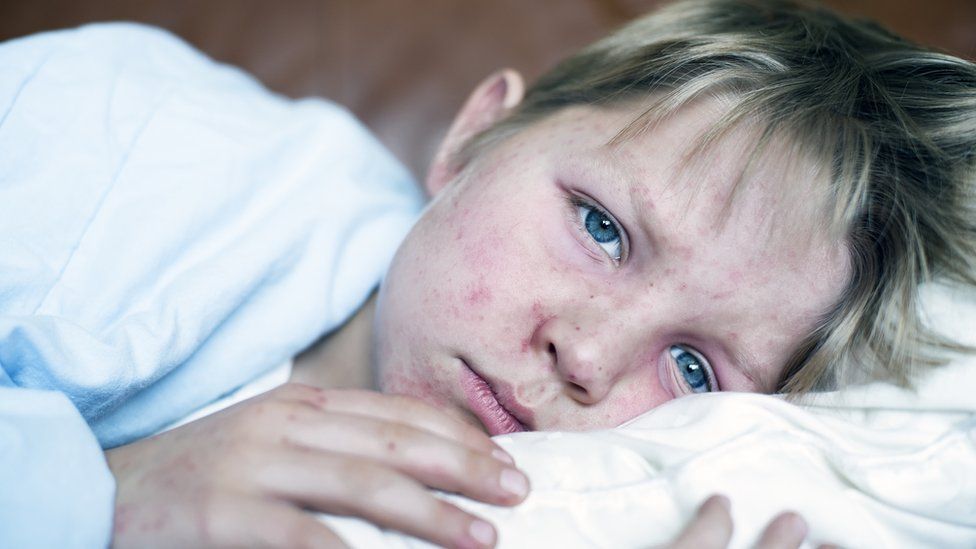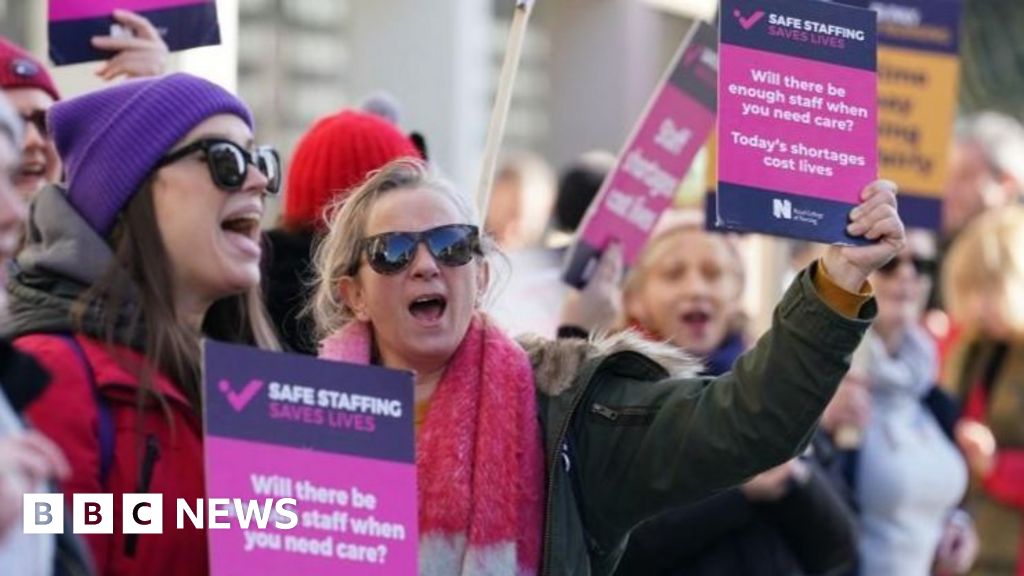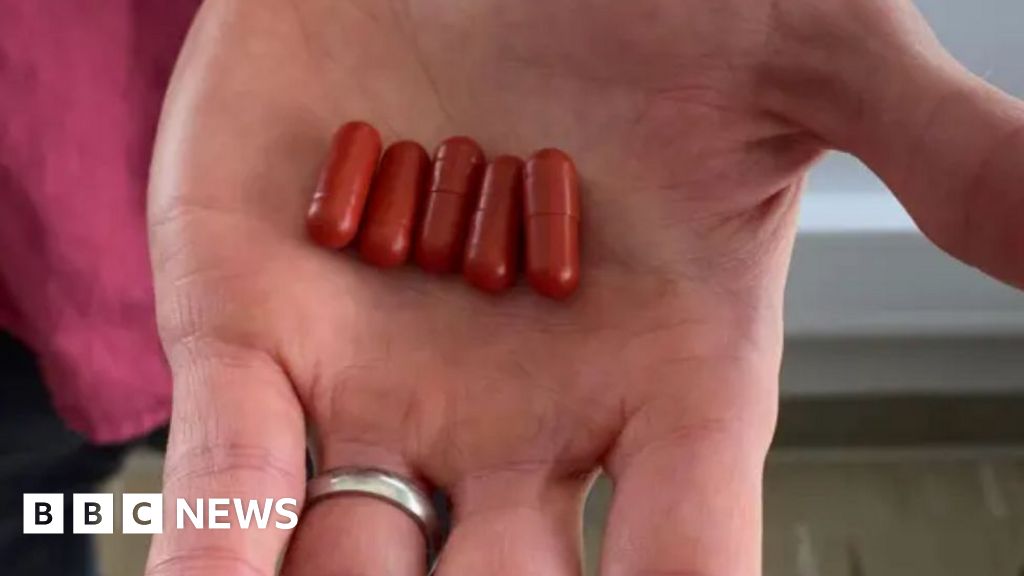ARTICLE AD BOX
 Image source, Getty Images
Image source, Getty Images
By Philippa Roxby
Health reporter
Millions of parents in England are being contacted by the NHS and urged to make an appointment to have their children vaccinated against measles, as cases rise across the country.
More than 3.4 million children aged under 16 are unprotected and at risk of becoming ill, NHS England says.
Areas with low uptake of the MMR vaccine, such as the West Midlands and London, are being targeted first.
A similar campaign last winter pushed up vaccinations by 10%.
UK health officials said last week that an outbreak of highly contagious measles in the West Midlands could spread rapidly in other towns and cities with low vaccination rates.
Dame Jenny Harries called for "a call to action right across the country" after hospitals in Birmingham reported a sharp rise in cases in children.
The measles, mumps and rubella (MMR) vaccine is given in two doses - the first around the age of one and the second when a child is about three years and four months old.
It is very effective at protecting against measles, but only 85% of children starting primary school in the UK have had both jabs - well below the target of 95% needed to stop it spreading.
Image source, Getty Images
Image caption,Symptoms of measles include a blotchy rash, high fever and red, watery eyes
In some cities, such as Liverpool, Manchester, Birmingham and Nottingham, only 75% of five-year-olds are fully vaccinated, NHS figures show.
The current campaign will contact more than four million parents, carers and young adults by text, email or letter to tell them they or their children have missed out on one or both doses.
This includes more than one million children aged six to 11 across England, plus 330,000 11 to 16-year-olds and nearly one million 16 to 26-year-olds in London and the West Midlands.
Many young adults who were young children when a study falsely linked the vaccine and autism 25 years ago, are still unvaccinated.
Steve Russell, NHS England's director of vaccinations and screening, said the NHS was acting quickly to tackle the spread of measles.
"People who are unvaccinated can get catch-up jabs at MMR pop-ups in schools and other convenient places, while GPs, teachers and trusted community leaders are encouraging groups that are less likely to get their jab to come forward," he said.
One in five children with the disease are having to be admitted to hospital for treatment in Birmingham.
Babies who are too young to have their first dose, pregnant women and those who have weakened immune systems are most at risk from measles, which can be serious at any age.
During pregnancy, measles can lead to stillbirth, miscarriage and a baby being born small, so NHS England is encouraging young adults to catch up on missed doses too.
Why is there a fall in vaccines in children?
There are lots of different factors involved and experts say it is too easy to blame anti-vaccine attitudes.
With the NHS under huge pressure, parents say they struggle to get through to their GP and speak to the right staff about questions they have about the jab. Making a convenient appointment for their child to have it when busy parents are working can also be a challenge.
That is why head teachers in some areas are now working with the NHS to run clinics in schools, where children are.
Dr David Elliman, community paediatrician at Great Ormond Street Hospital, said parents' questions were understandable and they should be given time to talk to a trusted practice nurse, health visitor or GP for reassurance.
"There are very few parents who do not want their children immunised," he says.
However, there are those who were put off going to health centres during the pandemic for fear of catching Covid.
And there are also many parents who have not seen measles before, because it was nearly eliminated in the UK a few years ago.
"That means people forget about the dangers of it," says Prof Helen Bedford, child health expert from University College London.
Between one in 1,000 and one in 5,000 people who catch measles will die, so the worry is that there could be dozens of deaths from a disease that is easily preventable.
There are still some who believe the fake news around the MMR jab and autism, tied to a study from 25 years ago, which is known to be completely false.
Those myths have become worryingly embedded in some communities, health officials say.
The legacy of that study is that thousands of young adults in their 20s, who were born soon after it was published, missed out on vaccinations because of their parents' concerns at the time.

 1 year ago
124
1 year ago
124








 English (US) ·
English (US) ·